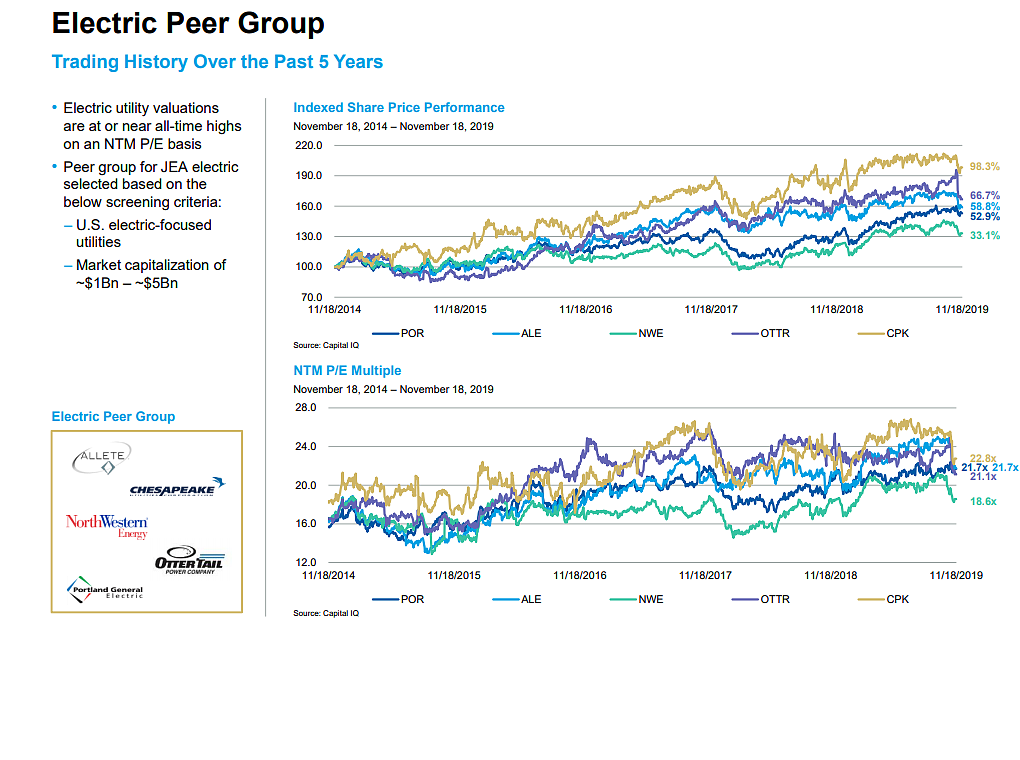
Besides selling JEA outright, the utility also considered the possibility of selling its stock through an initial public offering or reorganizing as a cooperative owned by its customers.
Investment banking firm Morgan Stanley prepared “discussion materials” for a possible IPO on Nov. 21, under the name Project Scampi.
The document said there were “trade-offs” to consider in an IPO, as opposed to a sale to a single buyer.
“These trade-offs include value, process and timing considerations, and qualitative factors such as the potential for continued City/community influence in, or benefit from, a publicly listed company as compared to a 100% strategic sale,” it said.
The advantages of an IPO included the current market for utility stocks. Since publicly traded utilities typically pay regular cash dividends, the stocks are appealing for certain investors.
“Publicly traded utilities are currently trading at all-time highs on an absolute basis and relative to broader market indices such as the S&P 500 primarily because of the current low interest rate environment,” the document said.
It also suggested JEA would be less transparent after an IPO, even as a public company subject to Securities and Exchange Commission disclosure laws.
“By transforming into a corporate form and having private sector investors, JEA would no longer be subject to the operational constraints inherent in government ownership, including no longer being subject to Florida’s Sunshine Laws,” it said.
Because of the nature of IPOs, the stock sales would take place gradually, with maybe 20% to 30% of the stock sold initially and the remaining shares sold in secondary offerings.
“There are numerous precedents from financial sponsors to suggest that over a period of roughly 2-plus years or so from the time of the IPO, the remaining shares in JEA could be sold,” the document said.
The community ownership option was examined in a document prepared by investment banking firm J.P. Morgan.
“As part of the broader review of potential strategic alternatives that would secure the future of JEA and optimize the utility's value for the City of Jacksonville and its citizens, JEA worked with its advisors to investigate the benefits and challenges of transferring ownership of JEA to its customers by reorganizing as a utility cooperative,” it said.
As a private, independent not-for-profit business, JEA customers would have the “ability to influence the long-term direction of the business,” it said.
However, the document does not give a clear indication of potential financial benefits for customers under a cooperative scenario.